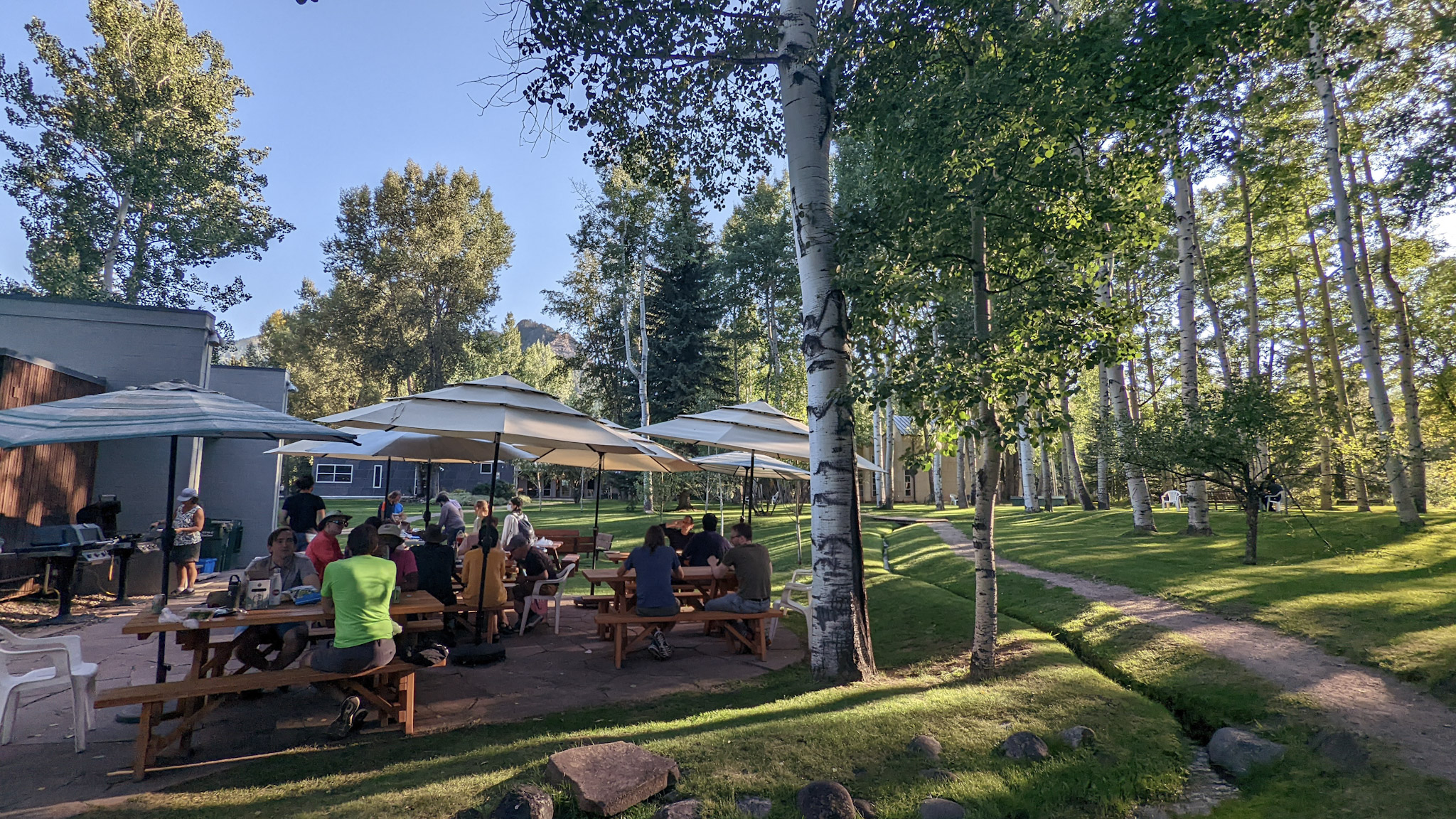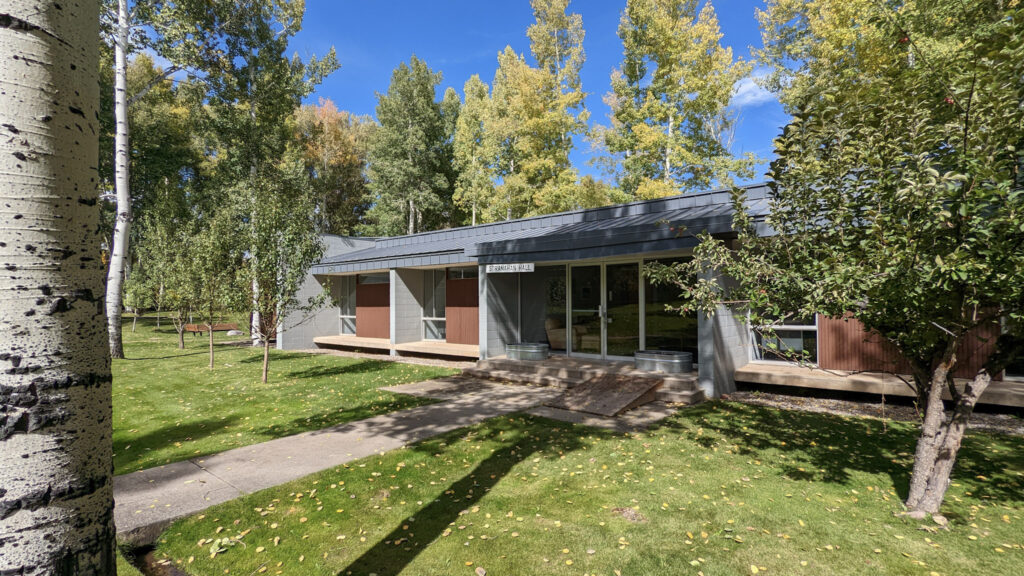Source: Overbye, Dennis. “In Aspen, Physics on a High Plane.” The New York Times (New York, NY), Aug. 28, 2001. https://www.nytimes.com/2001/08/28/science/in-aspen-physics-on-a-high-plane.html.
In 2001, The New York Times described the Aspen Center for Physics (ACP) as a “physics utopia,” and for good reason. The ACP is the only place on Earth where physicists can come to “talk, think and write […] while training like Olympians – hiking, scaling 14,000-foot peaks, cycling up mountain passes, jogging and playing cut-throat volleyball in Aspen’s thin air at 8,000 feet.” In this ideal physics world, few use projectors or PowerPoint presentations; they scribble equations on blackboards and swap ideas instead. The same physicists secure ski-lift tickets in winter, and rent bicycles in summer. From June to August, they ruminate and discuss to the sounds of Music Festival performances that waft from a tented concert hall across the nearby field; on Tuesday evenings, they gather with their families to barbecue under aspen canopies as the sun sets and dusk deepens. In this marvelous Rocky Mountain setting, among friends and colleagues, ACP physicists contemplate the nature of the universe, matter, and everything, with few distractions besides the beauty of the natural surroundings.


In fact, the founders of the ACP designed this place to be a physics utopia, which is why it has so effectively attracted distinguished physicists, and why it has inspired so many scientific advances since its opening in 1962. George Stranahan, then a physicist and postdoctoral fellow at Purdue University, and later a local entrepreneur and artisan brewer, started the ACP with the explicit goal of making an idyllic center for thinkers like himself. He worked with architects to create a space that would foster scientific collaboration among theoretical physicists, and conferred with administrators to establish policies enhancing discussion. Over the years, for example, by building bike racks and inviting food trucks to come around noon so that the physicists could buy their lunches and eat them together, the ACP has encouraged physicists to come to the center’s sylvan setting by day, to linger, and to talk. By installing offices equipped with two desks, and by assigning physicists randomly into the spaces, the ACP has reduced the likelihood that physicists would work alone and has increased the chances for them to meet new colleagues and potential collaborators. By hosting weekly picnics and sporadic receptions, the center has encouraged scientists to socialize… and, in that way, to develop new ideas. The ACP also requires scientists to stay for two weeks at a minimum, because the goal of the center is to facilitate the collaborative creation of new science, a process that takes sustained time. The ACP is not a conference site, but a venue for collaboration – a physics retreat.
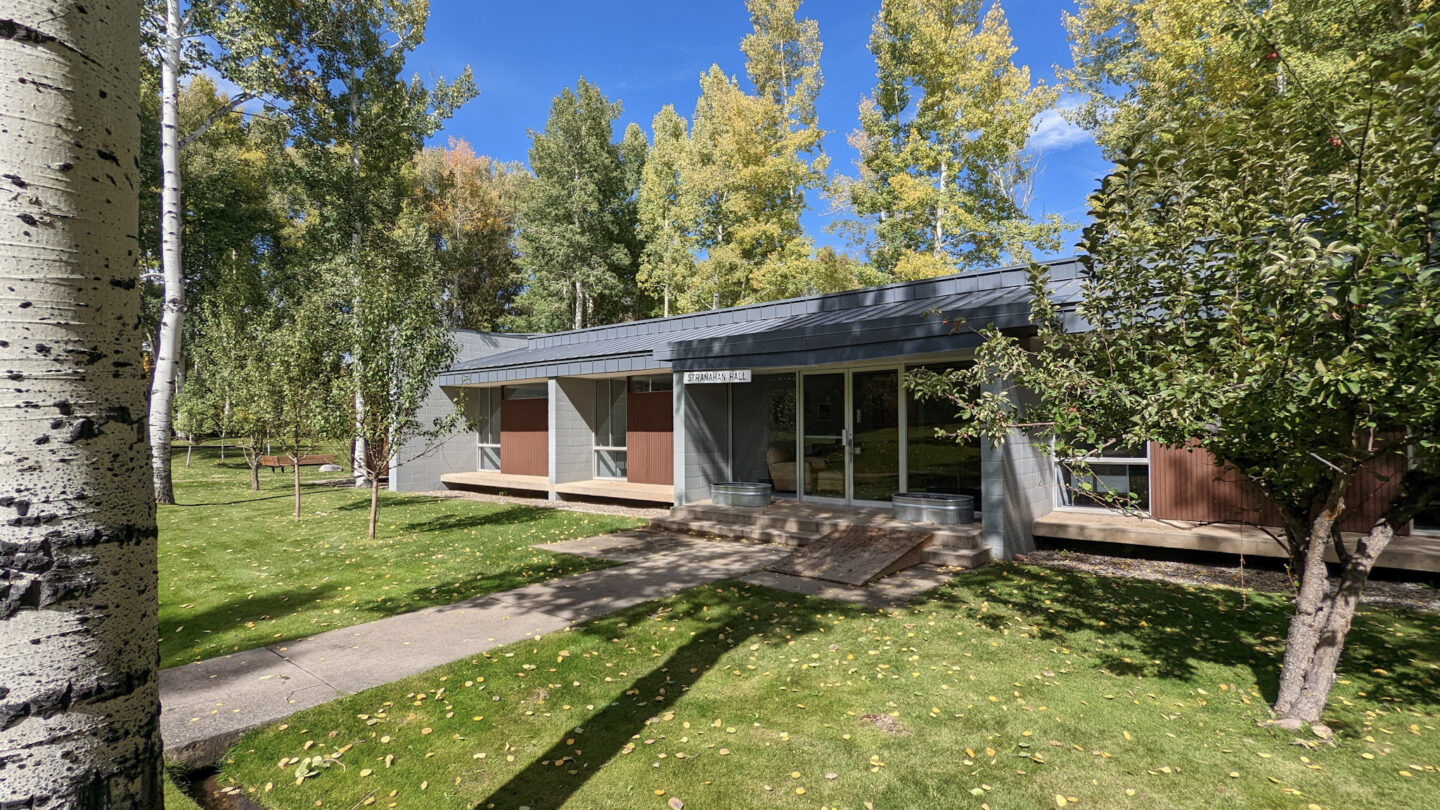
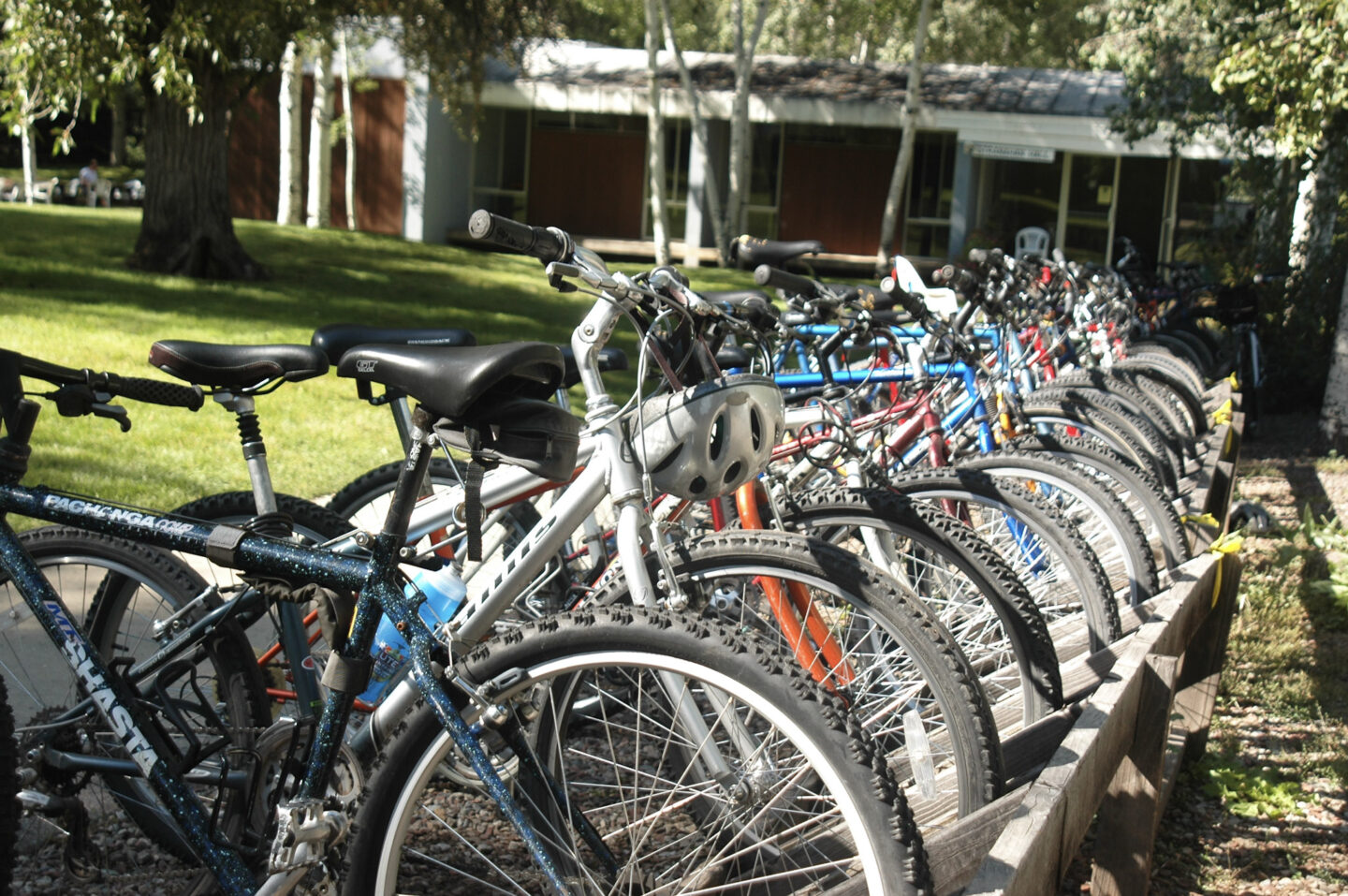
While the layout of the ACP’s offices and its work policies contribute to its interactive culture, the center’s location in Aspen has proven equally critical to its mission. By enabling physicists to immerse themselves in and engage with the beautiful outdoors, the center has provided physicists with a source of inspiration as they reflect on the nature and foundations of the universe. Furthermore, Aspen provides many venues for outdoor recreation, which in turn fuels the motivation to do physics. One physicist put it quite simply: “there is a strong correlation between being a physicist and having a passion for mountain sports.”
ACP physicists are indeed avid climbers, bikers, backpackers, hikers, kayakers, white water rafters, bicyclists, campers, and more. In the summer you are likely to pass a physicist cycling from Aspen’s Main Street to Independence Pass, on a narrow winding cliffside road. You might encounter another, three hours into Lost Man Loop, as you follow a trail whose air thins with each foot of ascent. You might even run into a whole physics family, eating a packed meal at the Difficult Campground, or meandering on the paths of Ashcroft Ghost Town.
ACP physicists pursue myriad other artistic, academic, and miscellaneous hobbies in Aspen. Visiting scientists have included amateur poets, herpetologists, square dancers, and artisan bread-makers (who are unfazed by the challenges of baking at high altitudes).

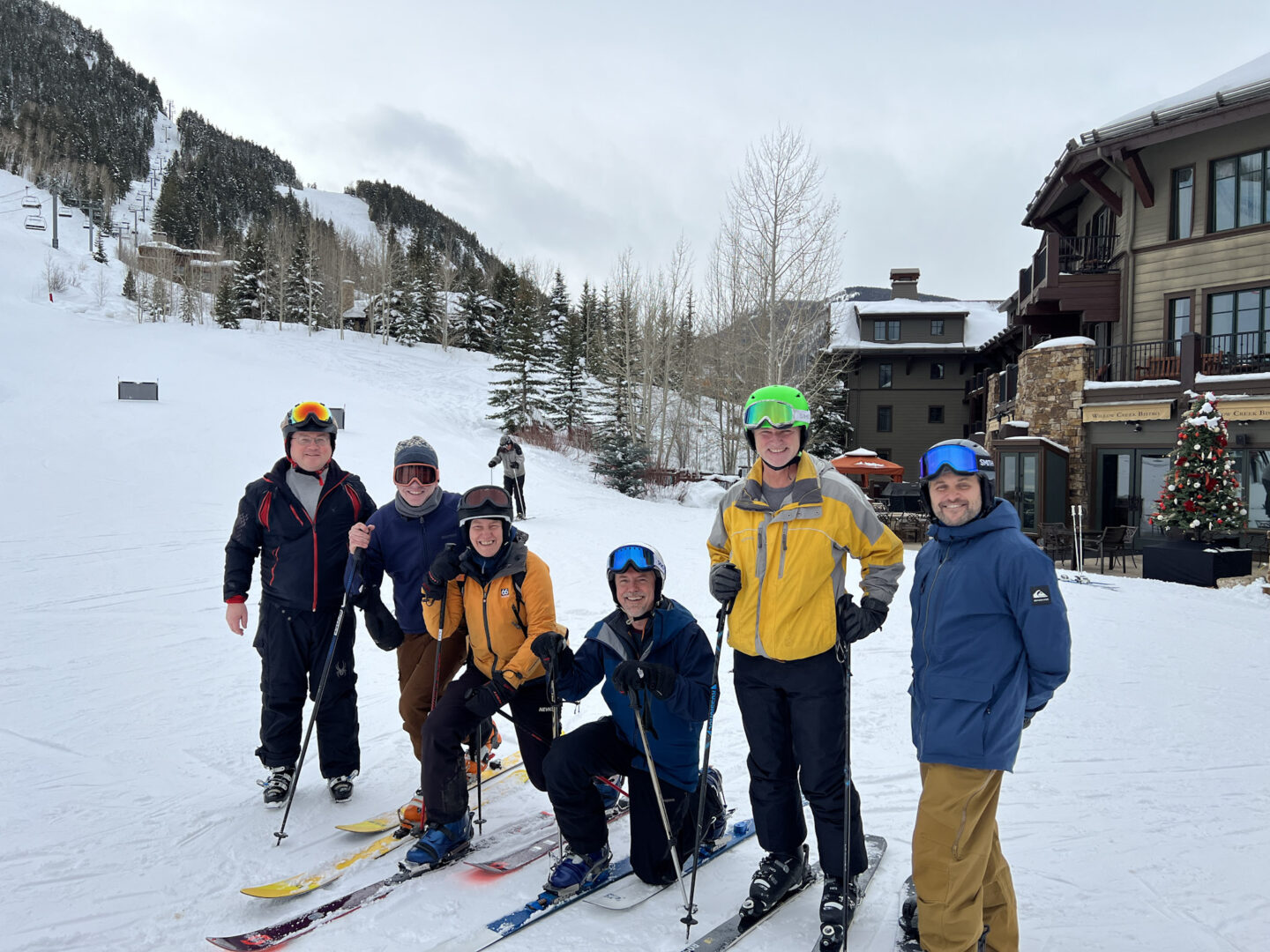

Not only do physicists work and pursue their passions in Aspen, but they also spend time together with their families in town. Physics families frequently host potluck dinners; attend Pitkin County Library, Aspen Art Museum, and Aspen Music Festival events; get ice cream at Paradise Bakery (listening in the summer as musicians perform); and more. You may find ACP physics kids playing together by the streams on the center’s campus, eating shaved ice at the Snowy Pineapple stall in town, clambering around the playground at Wagner Park, or enjoying summer camp activities like those offered at the Aspen Center for Environmental Studies (ACES). By getting to know each other, physics families form bonds which not only enable strong future research collaborations and lead to new scientific discoveries, but which result in lifelong friendships.
Physicists gain a great deal from the utopian setting of the ACP. But the center is also an important cultural venue for the city of Aspen.

In particular, the Aspen Center for Physics offers numerous events for locals and visitors: public lectures which Aspenites come to hear and discuss afterwards, events for kids that introduce science through fun talks and modeled experiments, radio programs for teenagers, and more. In crafting events that aim to inspire residents and make physics accessible to Aspenites of all ages, the ACP has partnered with respected nearby institutions, such as the Aspen Institute, the Wheeler Opera House, and the Aspen Science Center. The physicists love the opportunity to gather in Aspen, and in return, the city of Aspen, its residents, and visitors love the ACP back for bringing world-class scientists who share their ideas and excitement.
When The New York Times called the ACP a physics utopia, its description was apt. From its design to its function, for physicists, physics families, and Aspen locals, the Aspen Center for Physics is a much-loved place of learning and an ideal spot for exploring the makings of the universe, the world, and the physical wonders within it.
